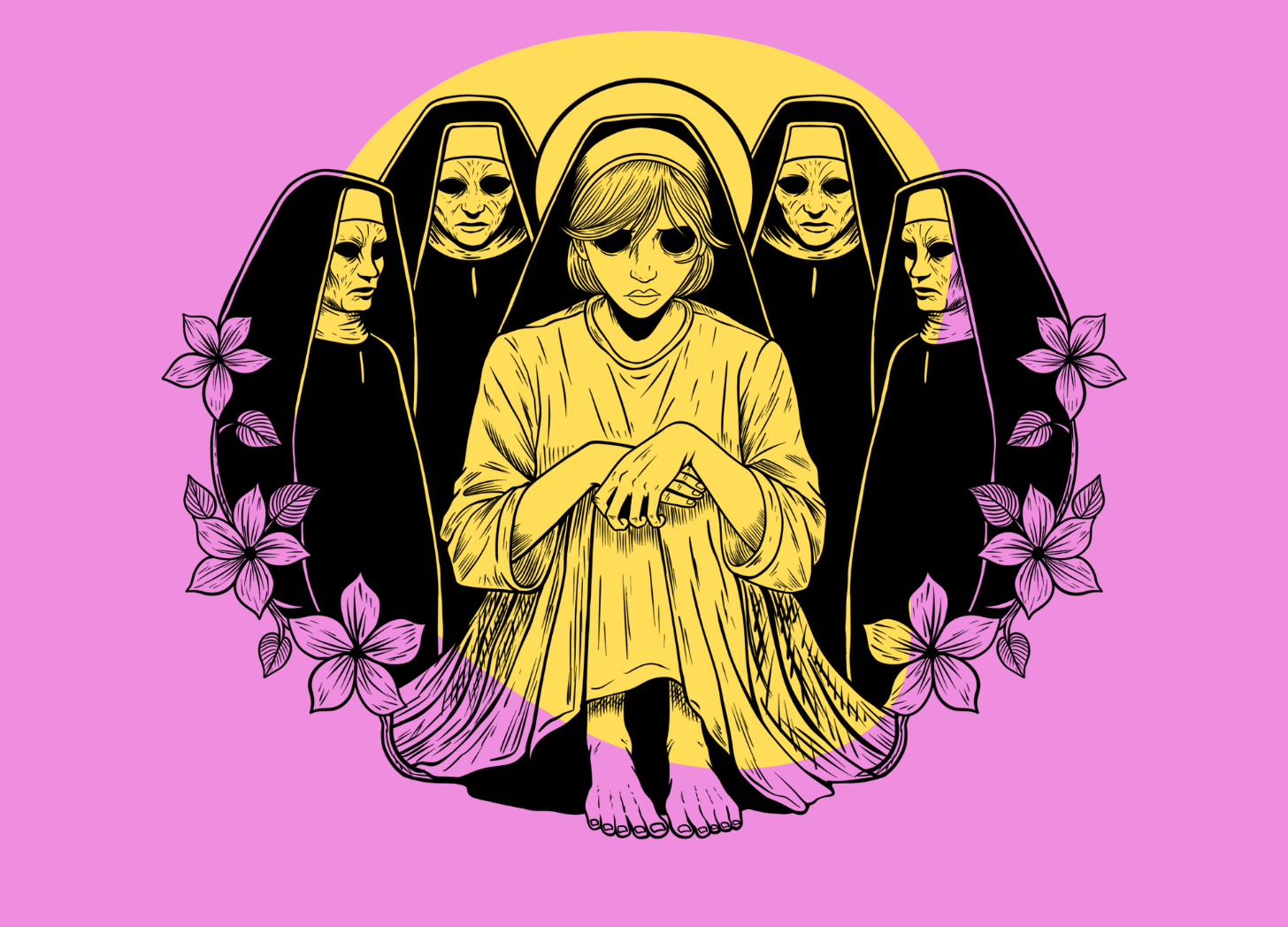The High Control Hangover: Spotting Religious Patterns in Psychedelic Spaces
Leaving a high-control religion taught me how easy it is to give your power away. What I didn’t expect was how often that same pattern shows up in psychedelic spaces.
I grew up in a high-control religion. I deconstructed many years ago — thank god (pun intended) — and found freedom, but also disorientation.
When everything you believe is handed to you, learning to trust your own inner compass can feel impossible.
Even decades ago, when I first entered the psychedelic world, I noticed something unsettling: the same patterns I thought I’d left behind were showing up again — this time they came draped in crystals, mala beads, and ceremonial sage.
Old Hierarchies in New Clothes
High-control religions often revolve around a central figure — someone seen as having special access to truth, divine insight, or sacred authority. They may not say “I am God,” but they carry themselves like they speak for something bigger — and they’re rarely questioned. It’s subtle, but deeply conditioning.
What struck me was how easily that same energy shows up in psychedelic spaces.
There’s often a facilitator, a “space-holder,” who speaks in elevated language, dresses the part, and who people start to orbit around. They may not be overtly claiming divine wisdom, but the vibe is there: "I have access to something you don’t (yet)."
Or worse: "You’re not quite healed, so you’re not ready to question me."
It mirrors what I experienced in church — where you were taught that questioning leadership was dangerous, even sinful. That conditioning doesn’t disappear just because you left the religion. It hides. And it can show up fast when you’re in a vulnerable, altered state and someone around you seems to “know better.”
I also noticed how group dynamics echoed what I knew from church. A kind of unspoken hierarchy begins to form in retreat spaces or integration groups. Those who have “done more medicine” or “received more downloads” often get more airtime, more reverence, and more authority.
It’s not always intentional, but it’s familiar — and if you come from a system where status was tied to piety, it’s easy to unconsciously play the same role again.
Escaping High-Control Groups: The Search for Certainty
One of the hardest things about leaving a high-control religion is the loss of certainty. Certainty about who you are, what your purpose is, what’s good, what’s evil, and even what happens after you die.
For a while, it can feel like you’re floating in a void. And if you’ve been taught that freedom means danger, that void can be terrifying.
That’s where psychedelics can seem like the perfect solution. They open up meaning. They offer big answers, deep visions, and the sense — sometimes overwhelming — that there is something more. And for someone who is still detoxing from the need for spiritual certainty, that can feel like quite a relief.
But here’s the trap: when you haven’t yet rebuilt your own inner authority, it’s easy to latch onto what feels like divine guidance and call it truth.
I’ve heard so many clients say, “The medicine told me I’m meant to be a healer,” or “The medicine showed me my path,” or “It told me to move, to leave my job, to go all in.”
Sometimes those insights are truly life-changing. And sometimes, they’re coming from the same place in the psyche that once said, "God has a plan for your life."
It’s not that the insight is wrong — it’s that the relationship to it can still be distorted. It can be another version of spiritual outsourcing, another way of asking something outside ourselves to make the hard decisions for us.
We don’t always know how to sit with the unknown. We want answers. And in that search, we may unintentionally recreate the very dynamics we tried to escape.
“The Medicine Told Me…”
I want to be honest here: I use that phrase too.
“The medicine told me…” It slips out of my mouth sometimes when I’m trying to describe a moment of clarity, an insight, a deep remembering. But when I say it, I’m not talking about the medicine like it’s some external guru whispering instructions in my ear.
What I usually mean is this: the medicine opened a door inside me. It softened the noise, the defenses, the conditioning — and in that space, I could hear my own truth more clearly. It felt like the medicine revealed something, not that it commanded something.
But that nuance gets lost sometimes, especially in psychedelic spaces that mimic spiritual hierarchy. “The medicine told me” starts to sound a lot like “God told me,” and if you’re not careful, it becomes another way of avoiding your own discernment. Another way of mistaking inner guidance for external authority.
And when someone is still healing from religious conditioning — where doubt was considered weakness, and “divine instruction” was never to be questioned — it’s easy to give away your power to a message or insight without actually sitting with it.
Not every vision is a directive. Not every download is destiny. Sometimes the most powerful thing the medicine offers isn’t instruction at all — it’s the spaciousness to start listening inward, maybe for the first time.
The Trouble With Trauma-Informed Language
Something I’ve noticed in both high-control religions and psychedelic spaces is the use of language that sounds supportive — but can actually be deeply manipulative when it’s not backed by real understanding.
In the church, it was “love the sinner, hate the sin.” “I’m saying this out of love.” “God’s still working on you.” Words meant to comfort — or control.
In psychedelic spaces, we’ve got a new vocabulary. “Integration.” “Nervous system regulation.” “Safe space.” “Trauma-informed.” But too often, these words are being used by people who haven’t done the real work of understanding what trauma actually is — especially religious trauma.
There are facilitators who speak fluently in the language of healing while completely bypassing their own unresolved patterns.
Some repeat phrases about holding space while subtly positioning themselves as the enlightened one in the room.
Others talk about co-regulation while ignoring power dynamics.
And for someone fresh out of a high-control environment, it’s incredibly easy to get pulled into this dynamic — especially when you’re told that questioning it is resistance, ego, or worse — “a trauma response.”
This is where harm happens. Not always intentionally, but quietly. Insidiously. Under the guise of support.
Real trauma-informed work is humble. It leaves room for doubt. It honors agency. And it doesn’t frame your discomfort as a failure to surrender.
Fear for Sale: Narcissism, Bypassing, & the Dark Side of the Psychedelic Community
I’ve done DMT. I’ve met the Machine Elves. I’ve met Sprites. I’ve encountered the strange, unexplainable edges of consciousness that defy logic. So when I say this, it’s not coming from dismissal — it’s coming from experience.
What Real Healing Looks Like
Real healing doesn’t ask you to replace one authority with another. It doesn’t hand you a new doctrine wrapped in flowered language and call it freedom. It invites you to pause, to listen, and to build trust in your own knowing — even if that knowing is quiet, uncertain, or evolving.
For those of us who come from high-control religious environments, it’s not just about healing trauma — it’s about unlearning the reflex to outsource our power. To stop looking for someone else to tell us who we are or what comes next.
Psychedelics, when held with care, can be powerful allies in that process. They can strip away the noise and let you hear your own voice again. But they are not gurus. They are not gods. They are not here to give you a step-by-step plan.
The real work is learning how to sit with what arises and discern what’s true for you — not what someone else says the medicine meant.
In my own journey — both personal and professional — I’ve found that healing looks less like clarity and more like capacity. The capacity to question, to feel, to rest in not knowing. The capacity to be with yourself fully, even when the way forward isn’t obvious.
And that’s the paradox of it all: the more grounded you become in your own authority, the more open you are to healing. Not because someone told you what to do — but because you remembered you’ve known all along.
Further Reading
Healing Isn’t a Performance: Why New Age Psychedelic Culture Is Missing the Point
Fear for Sale: Narcissism, Bypassing, & the Dark Side of the Psychedelic Community
Not All Who Trip Are Transformed: Beware The Spiritual Narcissist
Putting in the Work Post-Purge: How to Integrate Your Ayahuasca Experience
Enjoying Tripsitter? 🍄
Don’t Journey Alone! Tripsitter was built by a community of psychedelic advocates — but it’s people like you that allow us to thrive.
You can also follow us on Bluesky or subscribe to our Reddit.









